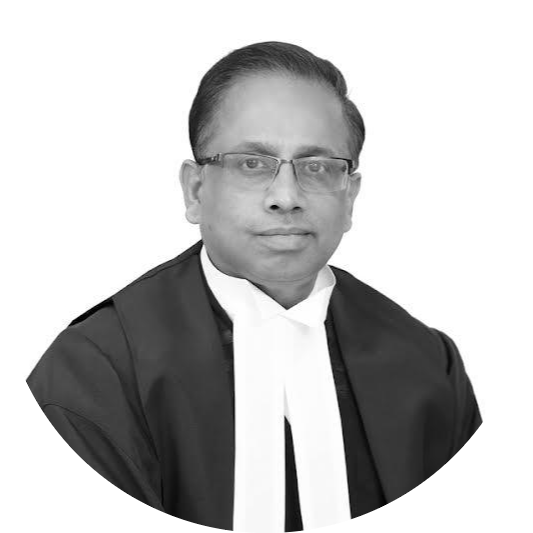Supreme Court: In an appeal filed by retired Haryana IPS officer Bharti Arora against the judgment and order passed by the Punjab and Haryana High Court, which had upheld the order of the Special Court relating to proceedings initiated against her under Section of the (‘NDPS Act’), the three-judge bench comprising B.R. Gavai, Prashant Kumar Mishra and K.V. Viswanathan, JJ., granted relief to Bharti Arora. The Court quashed the summons issued by the Special Judge and the subsequent proceedings under Section of the .
The Court emphasized that, as per the provisions of Section of the , a person must be tried summarily for an offence punishable under Section 58. The Court also observed that the judgment and orders passed by the Special Judge were unsustainable in law for more than one reason. Additionally, it highlighted that there had been a gross violation of the principles of natural justice during the proceedings.
Background:
This case revolves around Bharti Arora, who was the Superintendent of Police (SP) in Kurukshetra during 2004-2005. On 06-01-2005, the police received secret information about a person involved in opium trafficking. Following the tip-off, a raiding party was formed and went to his residence, where he was found holding a plastic bag containing 8.7 kg of opium. An application from the accused, claiming innocence and that the opium had been planted on him, led Bharti Arora, utilizing her powers as S.P., to direct an inquiry. The inquiry report, submitted the same day, revealed that the accused was innocent, and the opium had been planted by others.
Despite the inquiry’s findings, a discharge application filed by the accused was dismissed by the Special Judge. Subsequently, a second discharge application, on the grounds that he was not named in the final report, was also dismissed. The Special Judge, while dismissing the application, found the conduct of the police suspicious and requested an inquiry by the Director General of Police and Inspector General of Police, Haryana. The case went to trial, and the Special Judge convicted the accused, and acquitted others, and criticized the involvement of senior police officials, including Bharti Arora, suggesting that the case against the other persons had been fabricated. A show-cause notice was issued to Bharti Arora, prompting her challenge in the High Court, which was dismissed.
The case continued with Bharti Arora filing several exemption applications to avoid her personal presence in court, citing official duties such as her involvement in the ‘Samjhauta Bomb Blast’ investigation. However, the Special Judge was skeptical and, after a series of adjournments and missed appearances, issued a bailable warrant against her. The Special Judge also expressed dissatisfaction with her repeated non-appearances and adjournments. Bharti Arora filed a Criminal Revision in the High Court, which upheld the Special Judge’s decision. The Special Court was directed to open the sealed cover and pronounce the order on 27-10-2010, with Bharti Arora instructed to be present. Dissatisfied with the High Court’s judgment, Bharti Arora filed a Criminal Appeal.
Analysis and Decision:
The Court noted that the reasons given by the Special Judge are that Bharti Arora and the other police officers have though exercised their powers under Sections , and of the , they were not exercised in a bona fide manner.
The Court said that the judgment and orders passed by the Special Judge are unsustainable in law for more than one reason. Further, there has also been gross violation of principles of natural justice.
Interpretation of the provisions of the NDPS Act and CrPC
The Court took note of Sections and of the and observed that the notice issued by the Special Judge to Bharti Arora and other police officers was related to an offense punishable under Sections of the . It was noted that the proceedings initiated by the Special Judge against Bharti Arora were for an offense for which the maximum sentence provided under the was up to two years. Section of the , which begins with a non-obstante clause, specified that notwithstanding anything in the CrPC, offenses punishable under the Act with imprisonment for a term not exceeding three years could be tried summarily. Therefore, the Court concluded that, if the proceedings were to be initiated against Bharti Arora for the offense punishable under Section of the , she was entitled to be tried summarily.
The Court reiterated that the statutory scheme, according to the provisions of Section of the , prescribes that, for convicting a person under Section 58 of the NDPS Act, he/she must be tried summarily.
The Court took note of Sections 251 to 262, of the CrPC, and said that these sections cover various stages of the trial process, including the framing of charges, the taking of evidence, and the delivery of the judgment. Thus, the Special Judge could not have conducted the proceedings against Bharti Arora for the offense punishable under Section of the , as such proceedings could only have been conducted by a Magistrate. Further, the Court said that the procedure required under Chapter XX of the CrPC, specifically Sections 251 to 256, which outlines the steps for the trial of summons cases, was also not followed, leading to procedural irregularities in the handling of the matter.
Good Faith
Referring to Section of the , the Court noted that it provides immunity to the Central Government, State Government or any officer of the Central or State Government or any other person exercising any powers or discharging any functions or performing any duties under this Act or any rule or order made thereunder from civil or criminal proceedings.
The Court took note of General Officer Commanding, Rashtriya Rifles v. Central Bureau of Investigation, , wherein it held that whether the performance of duty acting in good faith either done or purported to be done in the exercise of the powers conferred under the relevant provisions can be protected under the immunity clause or not, would depend upon the facts of each case and cannot be a subject matter of any hypothesis.
Violation of Principles of Natural Justice
The Court observed that the Special Judge had made adverse remarks against Bharti Arora without giving her notice or an opportunity to be heard. These observations, made at the final hearing stage, almost found her guilty of an offense under Section of the . Not only was she not given any notice or hearing, but the Special Judge also issued a show-cause notice under Section of the just two days after the judgment of conviction/acquittal was recorded, which was in clear violation of procedural fairness.
In response to the notice, Bharti Arora appeared before the Special Judge and filed a reply. Meanwhile, she challenged the show-cause notice in the High Court. The High Court, in its order refused to entertain the revision, stating that the order passed by the Special Judge should not be construed as an opinion on the merits of the matter.
However, immediately after the High Court’s order, the Special Judge accelerated the proceedings, scheduling hearings on seven different dates within just 10 days—from 20-05- 2008 to 300-5-2008. Despite a transfer order being issued on 26-05-2008, instructing the Special Judge to relinquish the post, the Special Judge continued to conduct hearings on 27th, 28th, 29th, and 30th May 2008. During this period, Bharti Arora was engaged in supervising law and order due to an ongoing agitation, which was brought to the Special Judge’s notice. Despite this, on 30-05-2008, the Special Judge proceeded to dictate and type the order, placing it in a sealed cover.
The Court concluded that the Special Judge had completely disregarded the principles of natural justice, denying Bharti Arora a fair opportunity to defend herself and accelerating the proceedings in a manner that undermined procedural fairness.
“Special Judge had given a complete go-bye to all the principles of natural justice.”, the Court remarked.
The Court observed that the matter had gone to the High Court in revision, where the High Court, through the impugned judgment and order, refused to interfere with the proceedings. However, the Court stayed the impugned order.
After reviewing the order dated 30-05-2008 passed by the Special Judge, the Court concluded that the Special Judge had acted in a predetermined manner. Despite the fact that both the State and the accused had challenged the judgment and order of conviction/acquittal in an appeal, which had been admitted, the Special Judge wrongly observed that the judgment had not been challenged and had become final. This reflected a complete failure to apply his mind to the facts and the ongoing appeal.
As a result, the Court found the order dated 30-05-2008 passed by the Special Judge to be flawed and set it aside, emphasizing the lack of proper consideration and procedural fairness.
Therefore, the Court set aside the judgment and order dated 14-10-2010 passed by the High Court in Criminal Revision. Additionally, the observations made by the Special Judge in the judgment and order of conviction/acquittal were also quashed.
Furthermore, the notice issued by the Special Judge to Bharti Arora under Section of the , along with all subsequent proceedings, including the order dictated and typed on 30-05-2008 by the Special Judge, was declared null and void. The Court effectively quashed and set aside all the actions related to the proceedings initiated by the Special Judge.
CASE DETAILS
| Citation: Criminal Appeal No. 1699 of 2011 Appellants : Bharti Arora Respondents : State of Haryana | Advocates who appeared in this case For Petitioner(s): Mr. Atmaram N.S. Nadkarni, Sr. Adv., Mr. Shashank Garg,Sr.Adv., Mr. Divyakant Lahoti, Adv., Mr. Bijender Singh, Adv., Mr. Tejasvi Kumar, Adv., Mr. Ambar, Qamaruddin, AOR, Mr. Kumar Vinayakam Gupta, Adv. For Respondent(s): Mr. Lokesh Sinhal, Sr. A.A.G., Mr. Rajesh Kumar Singh, A.A.G., Mr. Samar Vijay Singh, AOR, Mr. Nikunj Gupta, Adv., Ms. Himanshi Sakhya, Adv., Ms. Aakanksha, Adv., Ms. Sabarni Som, Adv., Mr. Fateh Singh, Adv., Mr. Amit Pandey, Adv. |
CORAM :

B.R. Gavai, J.

Prashant Kumar Mishra, J.

K.V. Viswanathan, J.
The post appeared first on .
